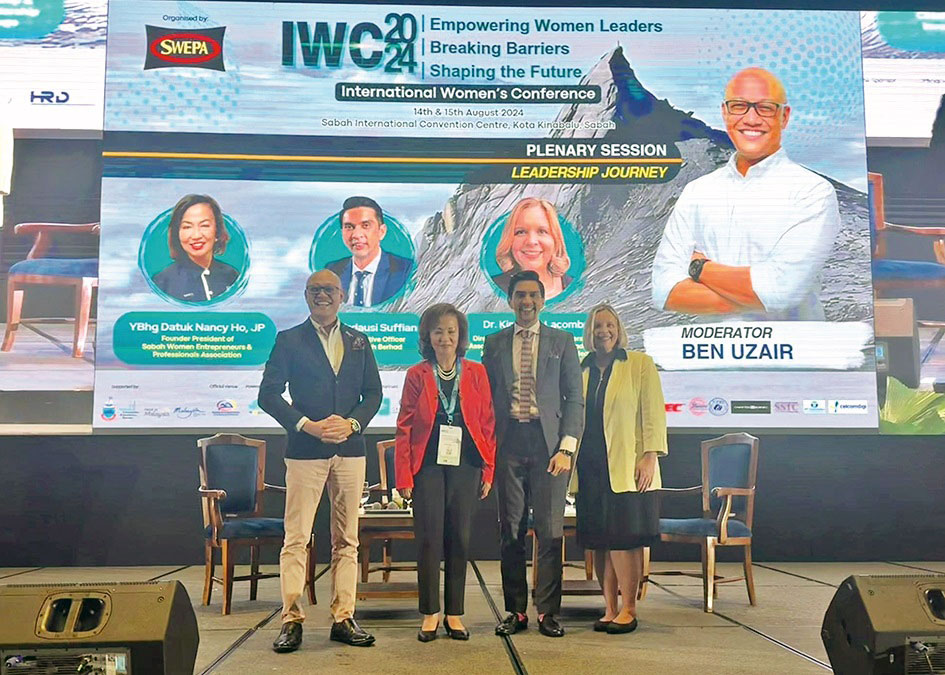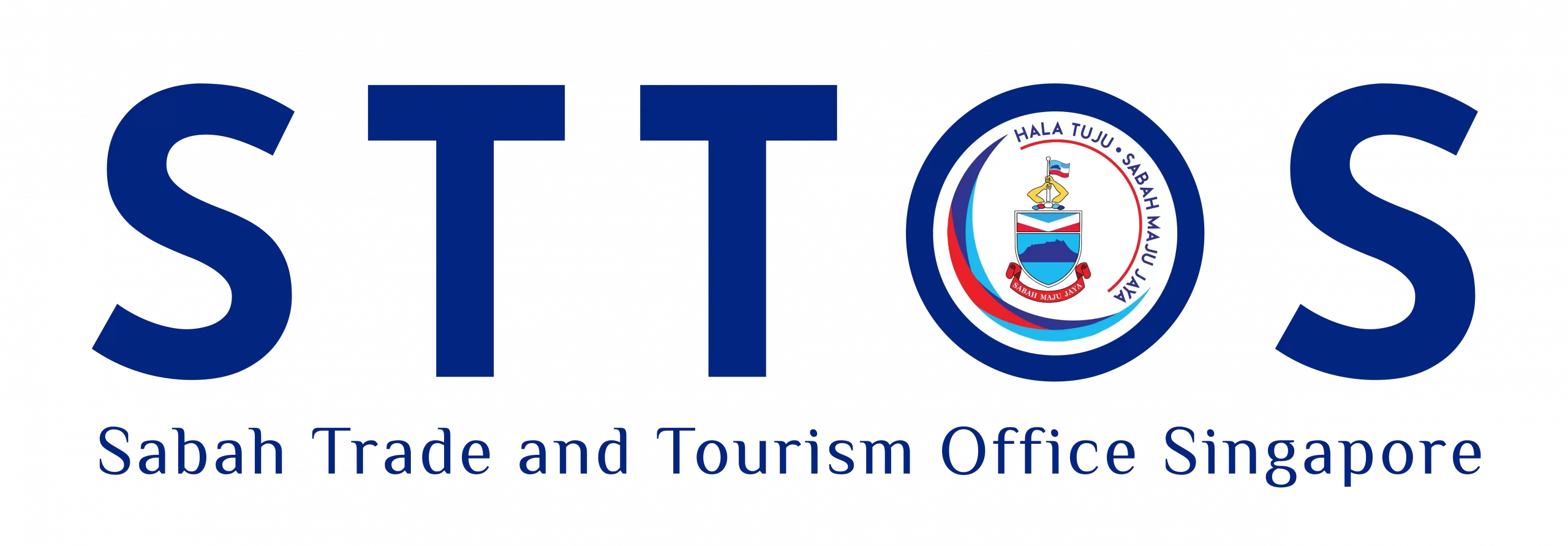Kota Kinabalu: Collaboration between men and women in the workplace is essential.
Sabah Women Entrepreneurs and Professionals Association (Swepa) founding president Datuk Nancy Ho said men and women work collaboratively, “they do not compete.”
“What some men perceive as aggression in women might stem from their insecurities,” she said at the International Women’s Conference (IWC) 2024, here, recently.
“It is critical for us to understand the vibes of the person we are dealing with, and together, we will work out collectively and progress.”
Nancy also touched on the importance of creativity and innovation in leadership.
She encouraged women to keep learning and pursuing their goals, regardless of age or stage in life.
“You are never too late to learn, set a new goal, or dream a new dream.
“Keep learning, keep pursuing because in the 21st century, the illiterate are not those who cannot read or write, but those who cannot learn, unlearn, and relearn,” she said.
Invest Sabah Berhad’s Chief Executive Officer (CEO), Dr Firdausi Suffian, shared his perspective on the role of gender in leadership and economic development.
He stressed that men and women complement each other, which is why we live in a robust and harmonious environment.
Addressing the notion that men might feel threatened by women breaking barriers, Firdausi dismissed the idea, noting that in Sabah, women make up a significant portion of the workforce.
“Sixty per cent of the workforce are women. I do not feel threatened, but we complement one another because I believe in gender equality.”
Firdausi also emphasised that leadership fosters growth in others, not just oneself.
“Leadership is not about you. A leader lets other people grow. If you do not do so, you defeat the purpose of leading,” he said.
Assoc Prof Dr Kimberly LaComba from Saint Mary-of-the-Woods College, US, underscored the value of thought leadership.
“Allow yourself some time to create a response or to think about something before you have that response.
“It is okay to do that, and often, it produces better results.”
She also encouraged women to embrace their passion, even if it is sometimes perceived as aggression.
“What might be perceived as aggressive is probably passion. That passion gets many of us very far.”
LaComba also reflected on the importance of creating supportive environments within organisations, especially if women feel that their male counterparts are threatened by their progress.
“If you feel that those you are working with feel threatened, then perhaps you need to ask if you are in the right space. Is there a more supportive environment that you could be in?”
She highlighted the challenges she faced early in her academic career when female leaders were scarce in higher education administration.
“When I started over 20 years ago, there were a few female role models, so my mentors were often male.
“I realised the need for more female role models, especially as I transitioned into research and pursued a doctoral programme in global leadership,” she shared.
LaComba emphasised the importance of intentionally building a network of female leaders and the role of creativity in leadership.
“Creativity and innovation are essential, but they are not always welcomed.
“My biggest accomplishments have come from stepping into that creative space, even when faced with resistance,” she added, recounting her initiative to create virtual study abroad programmes during the Covid-19 pandemic, which have since been adopted widely.
Nancy also shared her journey of overcoming institutional barriers in the pharmaceutical industry.
“When I returned to Sabah in 1972, the pharmacy was in its infancy, and many did not understand the profession. Some even asked if I was a farmer,” she recalled.
Determined to change this perception, she helped form the Sabah Pharmaceutical Society and later ventured into the national scene, where she faced resistance.
“A president who had held the position for 16 years openly said it would be long before a president came from East Malaysia.
“But I stood for election and won, serving for eight years,” Nancy recounted.
She stressed the importance of perseverance, saying, “There’s no barrier we cannot surmount. Sometimes, when the going gets tough, the tough get going.”
Firdausi provided a unique perspective on leadership, shaped by his experience as a single father while assuming a significant role in his organisation.
“Balancing leadership responsibilities and personal life is challenging, but it teaches you empathy and the importance of emotional connection,” he explained.
He also highlighted the importance of making decisions as a leader, regardless of whether they are perceived as good or bad.
“People will remember you for making decisions, but if you do not make any, that is what they will remember most,” he said, emphasising the need for courage and agility in leadership.
The importance of mentorship and empathy emerged as key themes throughout the session.
LaComba shared her belief in the power of mentorship in various forms.
“Mentorship is not just about one-on-one relationships. It is about building knowledge and support systems through formal programmes or peer-to-peer connections,” she said.
Firdausi and Nancy echoed this sentiment, with Firdausi emphasising the need for leaders to be agile and empathetic in a rapidly changing world.
“As a leader, you must be responsive, courageous, and understand the value of empathy,” he said.
Nancy shared a reflection on the importance of servant leadership.
“Leadership these days must be situational. It is about understanding people, catching their vibes, and reaching out with humility,” she said, reinforcing that successful leadership is rooted in empathy and the ability to connect with others on a personal level.
Source: Daily Express






